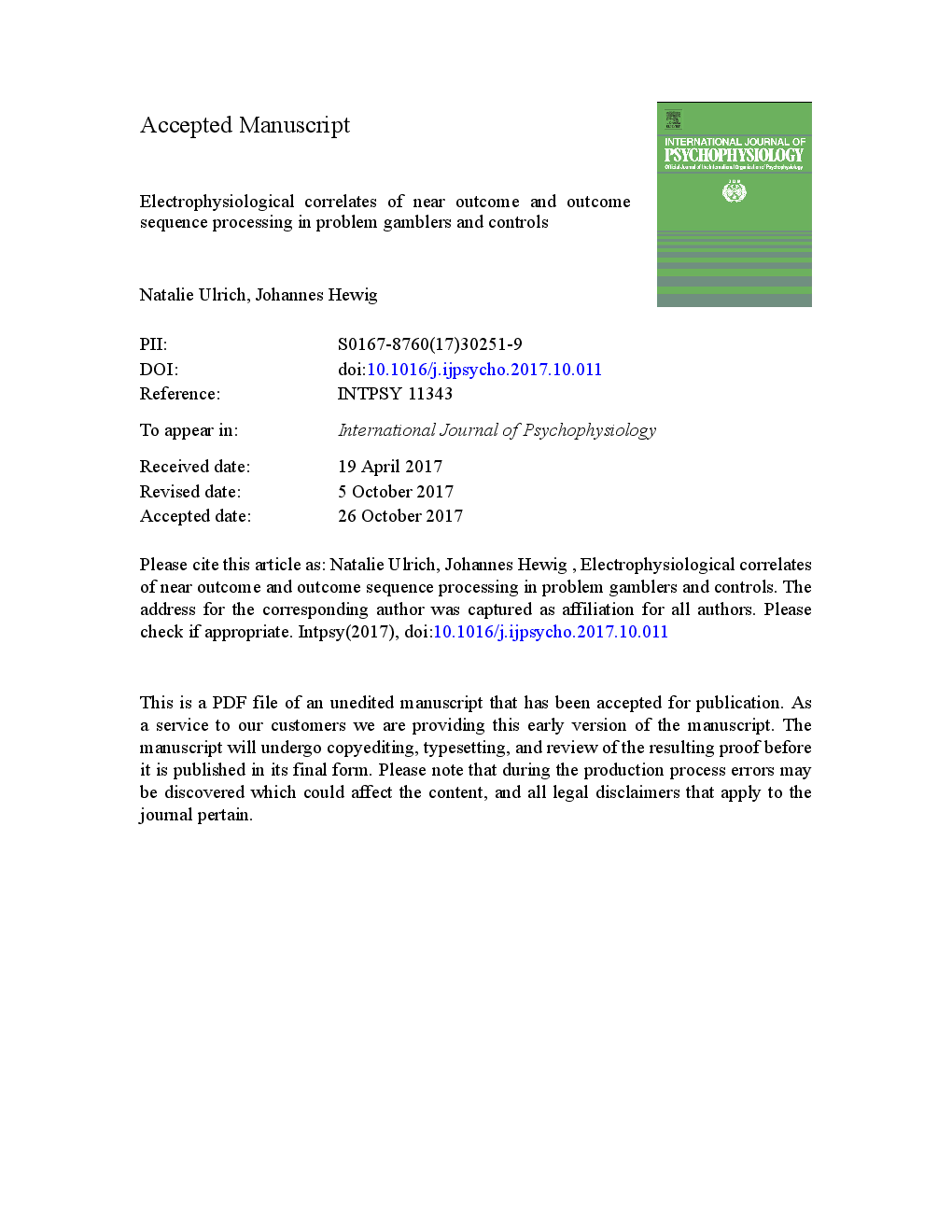ترجمه فارسی عنوان مقاله
همبستگی الکتروفیزیولوژیک پردازش تقریبی نتیجه و نتیجه در قماربازان و کنترلهای مشکل
عنوان انگلیسی
Electrophysiological correlates of near outcome and outcome sequence processing in problem gamblers and controls
| کد مقاله | سال انتشار | تعداد صفحات مقاله انگلیسی |
|---|---|---|
| 154349 | 2017 | 43 صفحه PDF |
منبع

Publisher : Elsevier - Science Direct (الزویر - ساینس دایرکت)
Journal : International Journal of Psychophysiology, Available online 27 October 2017

